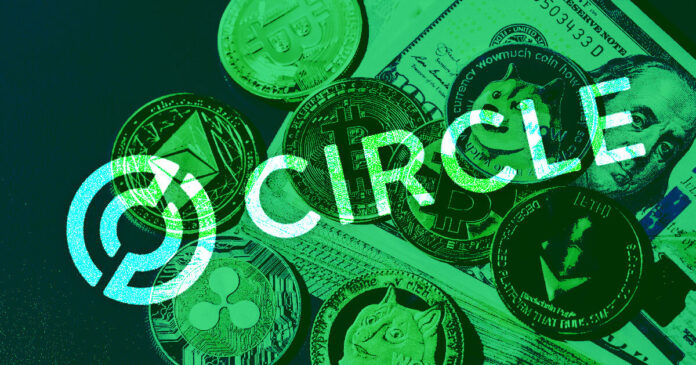Quick Take
- Circle submits a response to the Central Bank of Ireland highlighting the benefits of blockchain-based financial services for consumers.
- Circle offers recommendations on how financial supervisors can support innovation while ensuring consumers’ best interests.
- Public blockchains can increase competition and disaggregate financial services, benefiting consumer privacy and improving capabilities in the fight against illicit finance.
- Firms offering novel financial products should engage with supervisory authorities before a formal application.
- Financial regulators should actively inform consumers about market abuse/anomalies by tracking and analyzing real-time blockchain transaction data.
Circle response to Central Bank of Ireland
The issuer of the USDC stablecoin, Circle, released a response on Feb. 17 to the Central Bank of Ireland’s discussion paper on consumer protection, which called for industry insight into improving consumer-focused financial products.
Circle sent its written recommendations on Feb. 14 on how public blockchains can allow financial supervisors to “support innovation while ensuring consumers’ best interest” through products such as stablecoins like USDC and EUROC.
The stablecoin provider listed a series of benefits of blockchain technology in relation to consumer protection, including increased competition, disaggregation of financial services, privacy protection, improved financial literacy through transparency, and the ability for regulators to track on-chain data. An announcement from Circle posted to its website stated;
“Blockchain-based payment systems have the potential to disaggregate the proprietary and closed-loop stores of data that are accumulated by financial services providers and big tech companies that can pose risks to the privacy and security of consumers.”
Circle also recommended how financial supervisors can support innovation while protecting consumers’ best interests. It urged regulators to engage in ‘crypto-native’ activities such as reviewing on-chain data and assessing digital assets based on their unique design with industry guidance taking “the different asset types, activities, risks and incentives into account.”
The proactive approach recommended by Circle included incentivizing “firms offering novel financial products” to encourage engagement with regulators before any formal applications.
A “regulatory sandbox” would allow digital assets firms to work with regulatory and supervisory authorities to test novel technologies and approaches. Circle suggested that the approach could make firms more willing to engage with authorities and regulators to ensure that those offering financial products act in their customers’ best interests.
Credit: Source link























 Bitcoin
Bitcoin  Ethereum
Ethereum  Tether
Tether  Solana
Solana  XRP
XRP  Dogecoin
Dogecoin  USDC
USDC  Lido Staked Ether
Lido Staked Ether  Cardano
Cardano  TRON
TRON  Avalanche
Avalanche  Shiba Inu
Shiba Inu  Wrapped stETH
Wrapped stETH  Wrapped Bitcoin
Wrapped Bitcoin  Toncoin
Toncoin  Sui
Sui  WETH
WETH  Bitcoin Cash
Bitcoin Cash  Chainlink
Chainlink  Pepe
Pepe  Polkadot
Polkadot  LEO Token
LEO Token  Stellar
Stellar  NEAR Protocol
NEAR Protocol  Litecoin
Litecoin  Aptos
Aptos  Wrapped eETH
Wrapped eETH  Uniswap
Uniswap  USDS
USDS  Cronos
Cronos  Hedera
Hedera  Internet Computer
Internet Computer  Ethereum Classic
Ethereum Classic  Bonk
Bonk  Bittensor
Bittensor  Render
Render  Ethena USDe
Ethena USDe  WhiteBIT Coin
WhiteBIT Coin  POL (ex-MATIC)
POL (ex-MATIC)  Dai
Dai  Artificial Superintelligence Alliance
Artificial Superintelligence Alliance  MANTRA
MANTRA  Arbitrum
Arbitrum  dogwifhat
dogwifhat  Monero
Monero  Stacks
Stacks  OKB
OKB  Filecoin
Filecoin 
